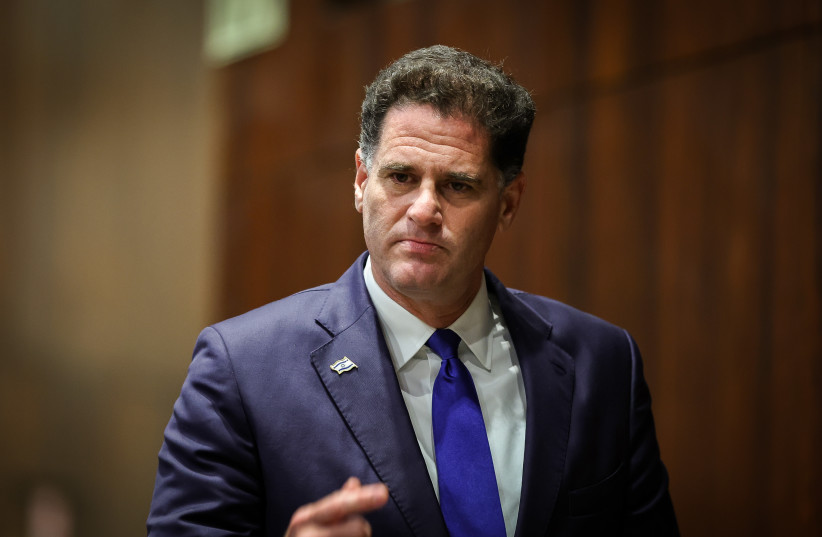Two close PM advisers, ex-Mossad, NSC chiefs call for pause to legislation
Two of Prime Minister Benjamin Netanyahu‘s closest and most recent former advisers, former Mossad chief Yossi Cohen and former national security council chief Meir Ben Shabbat called for pausing the judicial legislation in separate but simultaneous op-eds on Sunday morning.
Neither Cohen nor Ben Shabbat joined a letter issued over the weekend by all of the other five former still living Mossad chiefs and many other IDF, Shin Bet, police, and other security chiefs and top officials which blamed Netanyahu for the crisis over repealing the reasonability clause and the challenges to the stability of the defense establishment.
Rather, the two op-eds, Cohen’s in Yediot Ahronot, and Ben Shabbat’s in Israel Hayom, maintained a neutral tone without any direct criticism of Netanyahu, but still firmly called to pause the legislative push in order to reach a consensus on the changes to the separation of powers which Netanyahu seeks.
Who is Yossi Cohen to Netanyahu?
Cohen was Netanyahu’s NSC chief 2013-2016 and then was his Mossad chief from 2016-2021, including being given extensions and only stepped down in mid-2021 when he refused additional extensions requested by Netanyahu.
He was closely associated with many of Netanyahu’s achievements in the covert war against Iran and with setting much of the stage for the Abraham Accords, along with Ben Shabbat, Ron Dermer, and some others.
 Ron Dermer, Israel’s new strategic affairs minister, enters the Knesset plenum on December 29, 2022. (credit: YONATAN SINDEL/FLASH90)
Ron Dermer, Israel’s new strategic affairs minister, enters the Knesset plenum on December 29, 2022. (credit: YONATAN SINDEL/FLASH90)Meir Ben Shabbat
Ben Shabbat was a top Shin Bet official for decades until becoming Netanyahu’s NSC chief from 2017-2021 besides handling Iran and Abraham Accords issues, also dealt with sensitive issues with the US, Russia, China, the coronavirus, and elsewhere.
Cohen wrote on Sunday, “Iran constitutes the central threat to our security and the debate and the disagreement are endangering the resilience of the State of Israel in the immediate future. Therefore, I call on leaving the IDF out of the disagreements and to stop the legislative process in order to facilitate immediate dialogue between the different camps.”
Ben Shabbat did not explicitly call for a stop to the legislative process, but strongly implied his support for that result.
He wrote that the ongoing attacks by both sides of the political spectrum are ripping the IDF and the defense establishment apart. Rebuking a number of right-wing politicians, but also probably some reservists, he said the IDF must be left out of the political fighting.
The former NSC chief warned that Hezbollah and others are explicitly predicting the fall of the IDF and an opportunity to more aggressively attack Israel.
In that light, he said, “the representatives of the camps must enter talks to arrive at a consensus. Dialogue which will take place with the recognition of the suspicions which have taken root within each side, with good faith, respect and above all else, responsibility.”
Being that the said dialogue would unlikely be resolved within 24 hours, Ben Shabbat would clearly support some kind of pause in the legislative process to have sufficient time for the dialogue.
It is unclear whether the public moves of such close advisers who are also still looking out for his reputation, by avoiding attacking him, will move Netanyahu more than the much larger group of former defense chiefs who have accused him of causing the current defense crisis.
As of Saturday night, over 10,000 reservists and around 1,194 air force reservists were claiming they would quit their roles if Netanyahu does not stop the reasonability clause repeal.





Comments are closed.